Minister of Natural Resources and Environment Dang Quoc Khanh informed that there have been 12,107,457 comments on the draft Land Law (amended).
Continuing the program of the 5th Session of the 15th National Assembly, on the morning of June 9, the National Assembly worked in the hall to listen to the presentation of the Report on explanation, reception, revision, and presentation of the Report on the examination of the draft Law on Land (amended); the results of collecting public opinions on the draft Law on Land (amended).
General Secretary Nguyen Phu Trong and Prime Minister Pham Minh Chinh attended the meeting. National Assembly Chairman Vuong Dinh Hue chaired the meeting.
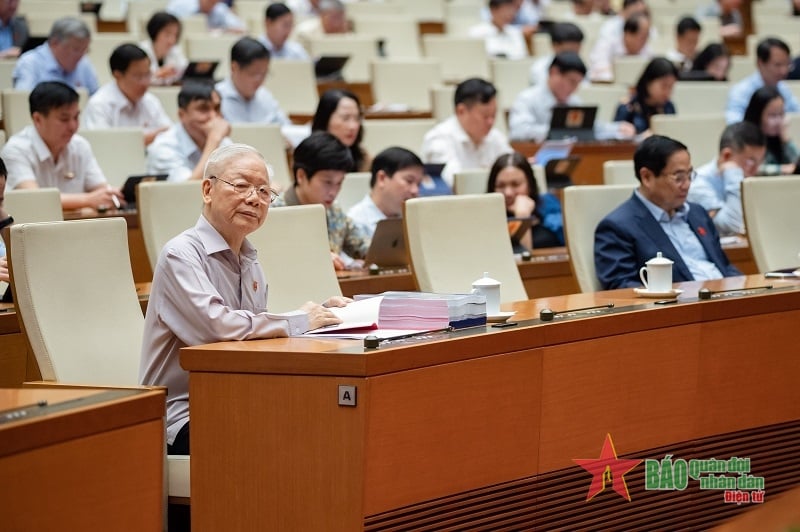 |
| General Secretary Nguyen Phu Trong, Prime Minister Pham Minh Chinh and National Assembly deputies attend the meeting. Photo: TUAN HUY |
More than 12 million comments on the draft Land Law (amended)
Presenting the explanatory report, Minister of Natural Resources and Environment Dang Quoc Khanh informed that the organization of public opinion collection will be carried out from January 3, 2023 to March 15, 2023. The Ministry of Natural Resources and Environment has posted the content of the draft Land Law (amended) and related documents on the website for public opinion collection. 63/63 provinces and centrally run cities have issued a Plan for organizing public opinion collection. Many ministries and branches have also issued a Plan for public opinion collection to implement in their ministries and branches.
There have been 12,107,457 comments on the draft Land Law (amended). The contents that people are interested in and comment on focus on: Compensation, support, resettlement; land allocation, land lease, land use purpose conversion; land finance, land prices; land use planning and plans.
After completing the public consultation, the Government continued to receive comments from full-time National Assembly deputies, the second round of social criticism from the Central Committee of the Vietnam Fatherland Front, the review comments from the Economic Committee, the Ethnic Council and the National Assembly Committees, and the comments from the National Assembly Standing Committee on the draft Land Law (amended).
The Government has taken the initiative to receive and explain public opinions to complete the draft Law right during the consultation process. The Government would like to express its gratitude to the National Assembly for its early and remote support and coordination in the process of summarizing and developing the draft Law as well as the process of receiving public opinions. The Government has seriously studied and received them to complete the draft Land Law (amended) to submit to the National Assembly.
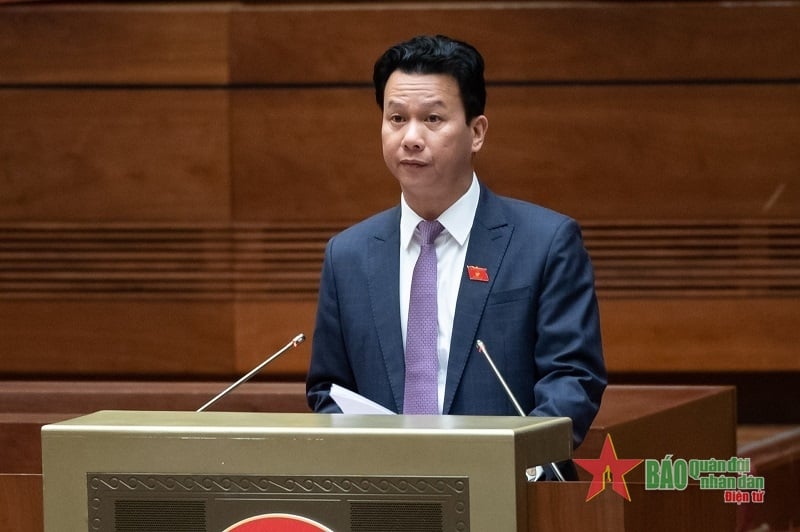 |
Minister of Natural Resources and Environment Dang Quoc Khanh: There have been 12,107,457 comments on the draft Land Law (amended). Photo: TUAN HUY |
Add more new content
Minister of Natural Resources and Environment Dang Quoc Khanh said that the completed draft Land Law consists of 16 chapters and 263 articles, of which 5 sections have been increased, 40 new articles have been added, and 13 articles have been removed compared to the draft for public consultation. In response to public comments, a number of chapters, sections, and articles have been revised and fundamentally changed in structure and content.
Notably, the draft law has adjusted the provisions of Article 17 in the direction that the Prime Minister issues a policy framework on land support for ethnic minorities, on that basis the Provincial People's Committee submits to the People's Council at the same level to issue specific policies suitable to the actual conditions of the locality, and at the same time clarifies the areas where the policy is applied.
In addition, the draft law also amends the provisions in Article 20 to ensure the supervisory role of the Vietnam Fatherland Front. Supplementing the provisions in Article 23 to strengthen the responsibility of the People's Committee at the commune level (the grassroots government directly managing land, closest to the people, understanding the aspirations and needs of land users) in the tasks of: Managing unused land; confirming the rights of land users; participating in the process of establishing, adjusting, announcing, publicizing, and managing land use planning and plans; participating in the process of establishing and organizing the implementation of compensation, support, and resettlement plans; participating as a member of the specific Land Valuation Council; detecting and preventing violations of land laws; participating in land dispute mediation, etc.
The draft law also added in Article 32 the regulation that land users who are currently leasing land from the State and paying a one-time fee for the entire lease term can choose to switch to leasing land with annual land rent payment and the land rent paid will be deducted from the annual land rent payable. It also added the regulation that public service units that are allocated land by the State without collecting land use fees and need to use part or all of the allocated area for production, business, or service provision can choose to switch to the form of leasing land from the State and paying annual land rent for that area....
The draft law also reviews the conditions for transferring land use rights for investment projects in urban area construction, housing areas, and infrastructure construction investment for transfer or lease as prescribed in Article 46 to prevent the abuse of policies to mobilize capital exceeding the project value, creating risks, affecting the safety of the credit system and other social consequences; ensuring consistency with the Housing Law, the Law on Real Estate Business, etc.
In particular, the draft law has been revised in the direction of not regulating the contents related to national land use planning, defense land use planning, and security land use planning in Chapter V, but amending and supplementing these provisions in the Law on Planning and proposing to amend a number of provisions of the Law on Planning in Article 249. The regulation assigns the authority to approve national land use plans to the Government to create proactiveness and flexibility in the Government's management in accordance with the planning decided by the National Assembly.
For national defense and security land use plans, they are regulated to be integrated into the national defense land use planning and security land use planning. Provincial land use plans are integrated into the provincial land use planning and are prepared, appraised, and approved at the same time...
Minister of Natural Resources and Environment Dang Quoc Khanh also said that during the process of collecting public opinions, there were a number of major issues that people, managers, and scientists proposed or that arose from practice but were not mentioned in Resolution No. 18-NQ/TW. The Government reported to the National Assembly for permission to continue researching, assessing impacts, and clarifying political, legal, and practical bases; on that basis, the Government Party Committee coordinated with the National Assembly Party Delegation to report to the Politburo and the Central Executive Committee before including them in the draft Land Law (amended). |
GRASSLAND
Source



![[Photo] Ha Giang: Many key projects under construction during the holiday season](https://vphoto.vietnam.vn/thumb/1200x675/vietnam/resource/IMAGE/2025/5/1/8b8d87a9bd9b4d279bf5c1f71c030dec)



![[Photo] Binh Thuan organizes many special festivals on the occasion of April 30 and May 1](https://vphoto.vietnam.vn/thumb/1200x675/vietnam/resource/IMAGE/2025/5/1/5180af1d979642468ef6a3a9755d8d51)









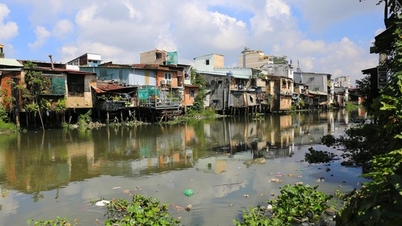


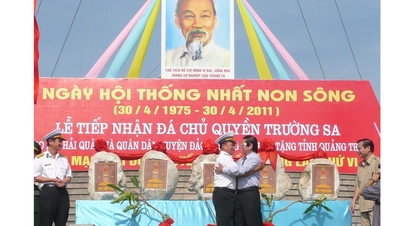

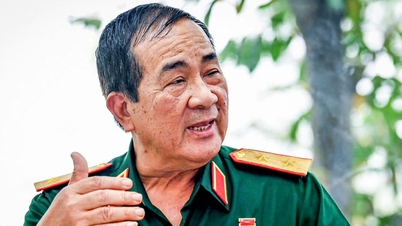









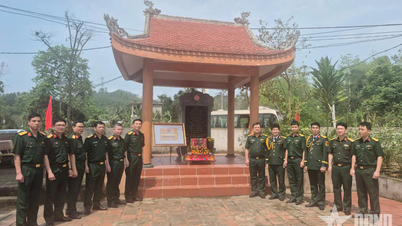
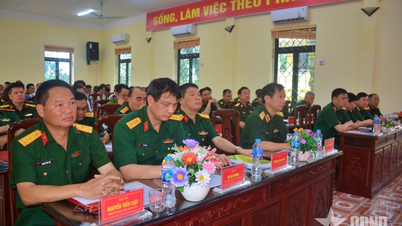

![[Photo] Feast your eyes on images of parades and marching groups seen from above](https://vphoto.vietnam.vn/thumb/1200x675/vietnam/resource/IMAGE/2025/4/30/3525302266124e69819126aa93c41092)

































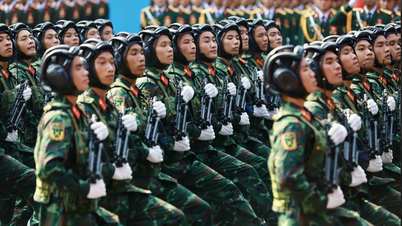




















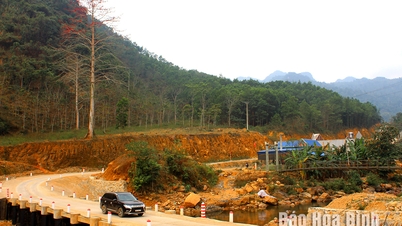







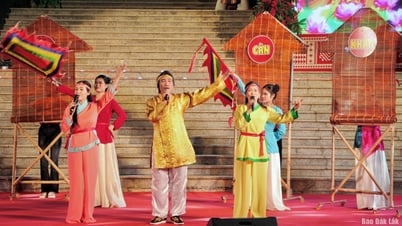

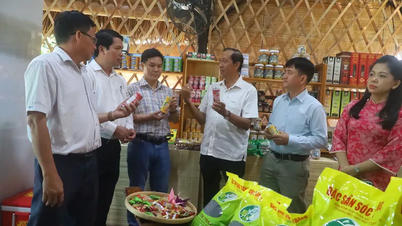

Comment (0)